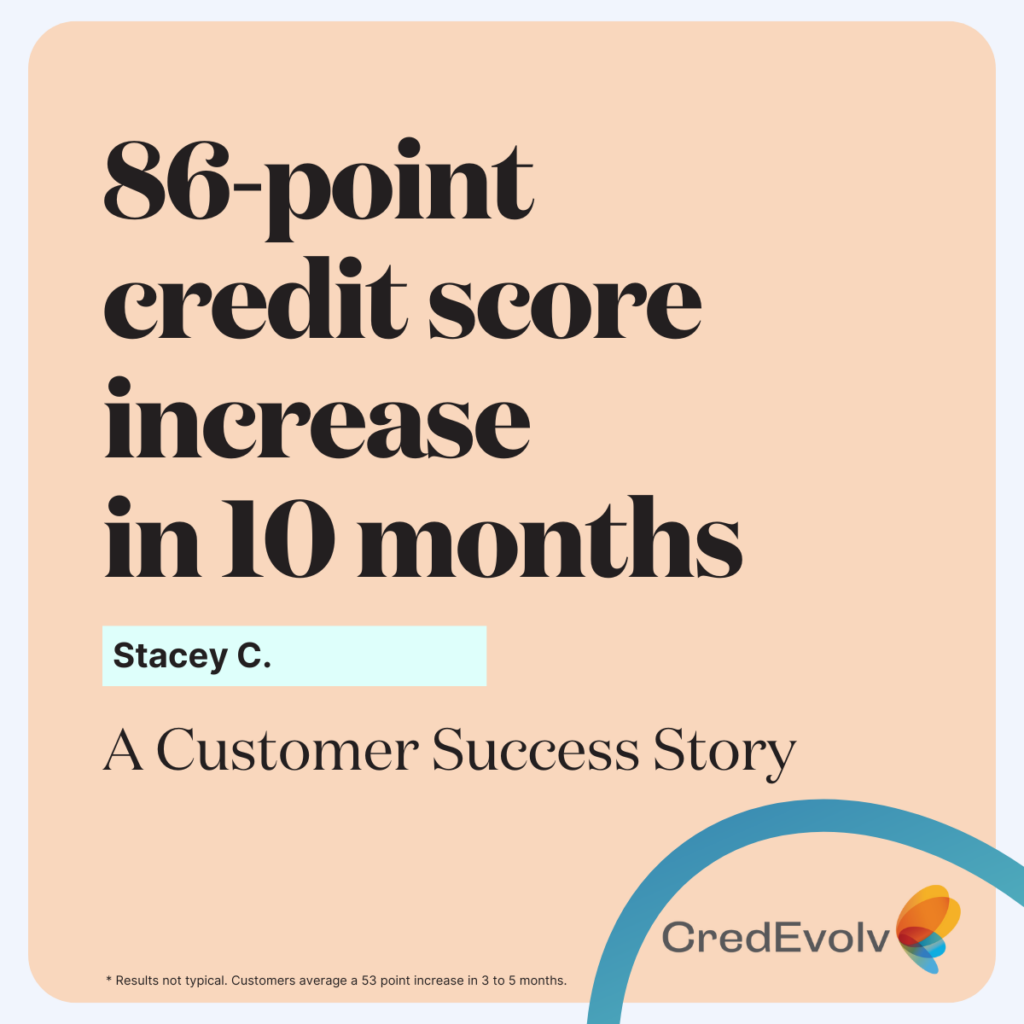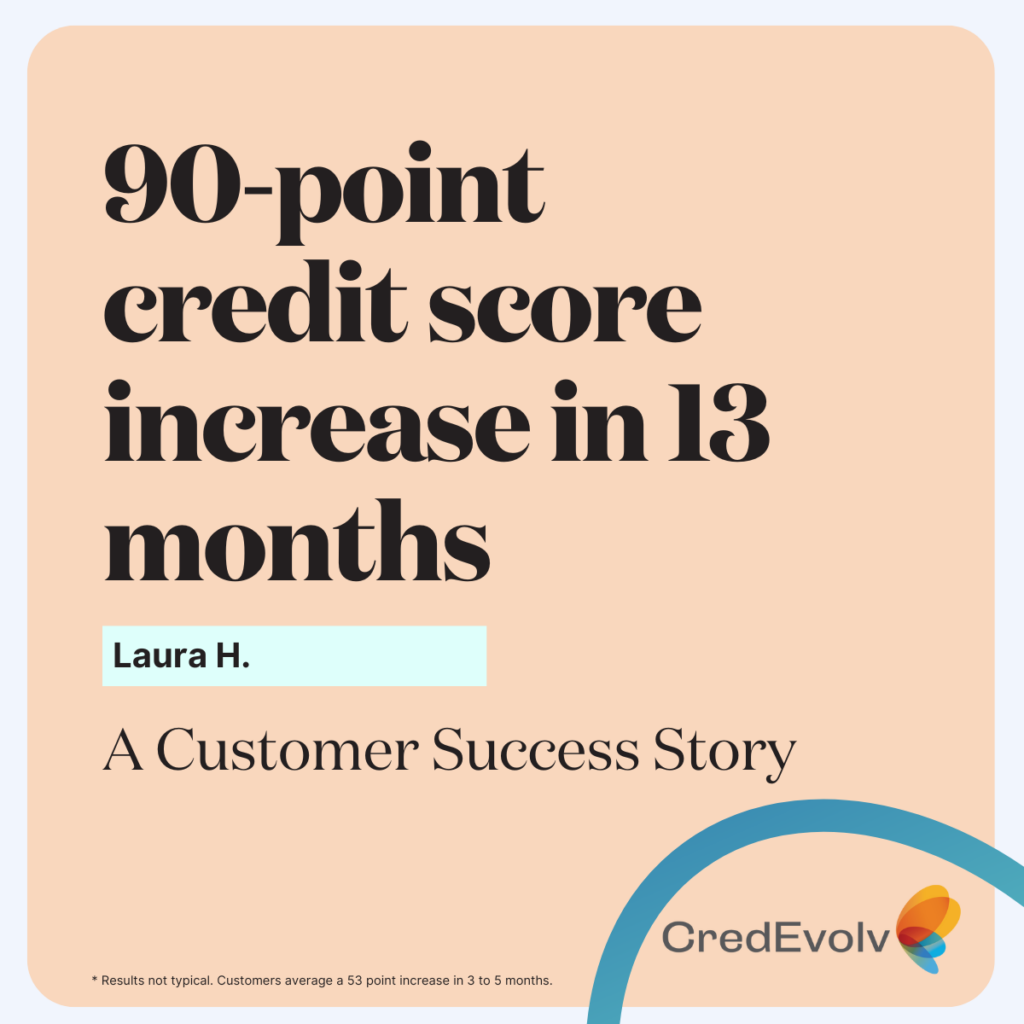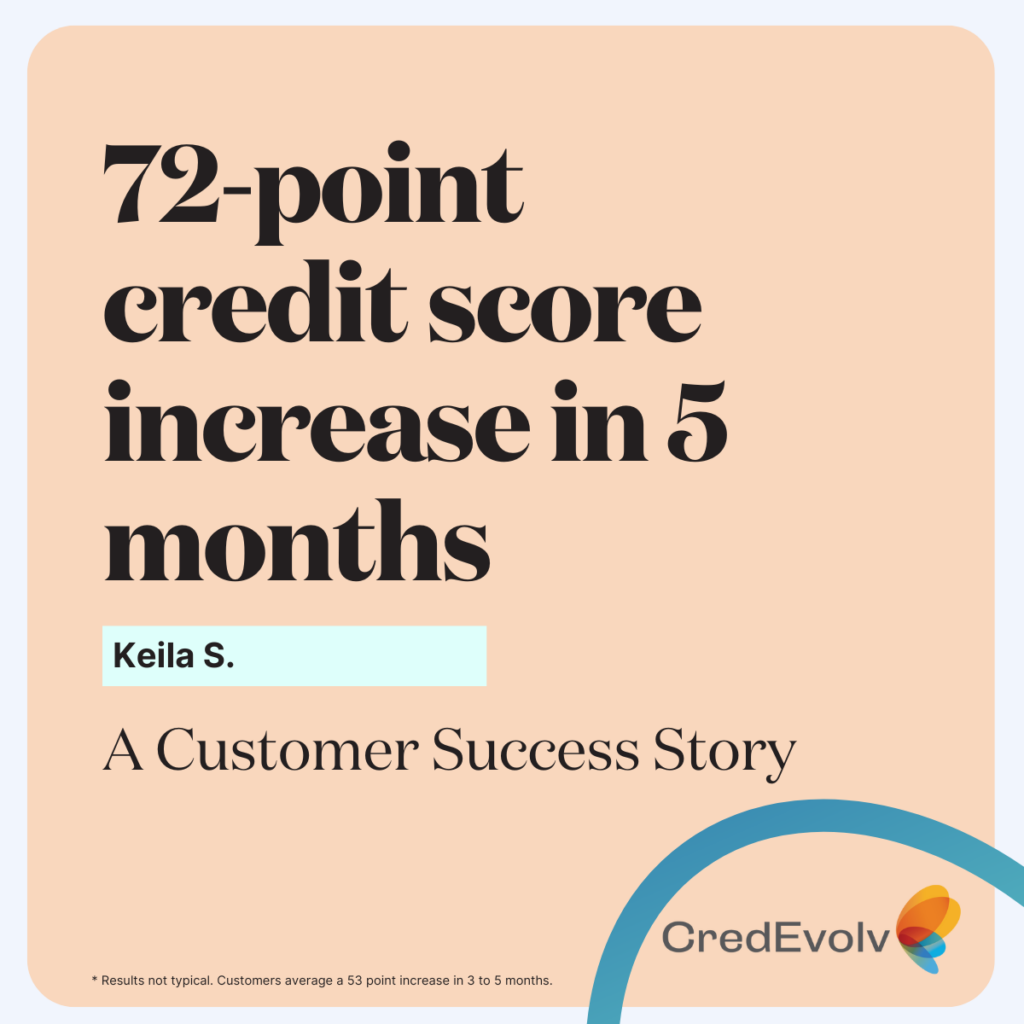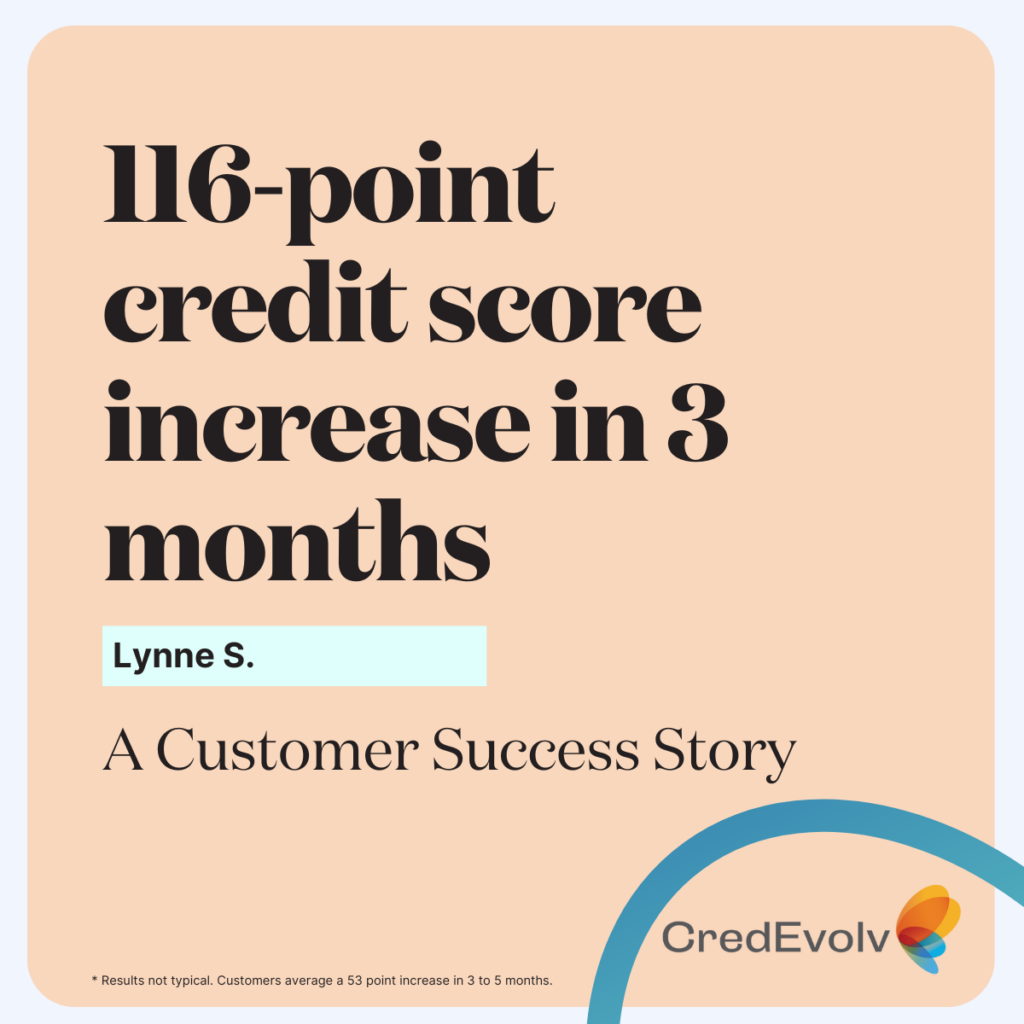A 477 credit score won’t get you very far. If you can push it into the 600s, doors start to open for you.
That’s exactly what Blanca R. did (with some help from CredEvolv) and that’s exactly what happened for her.
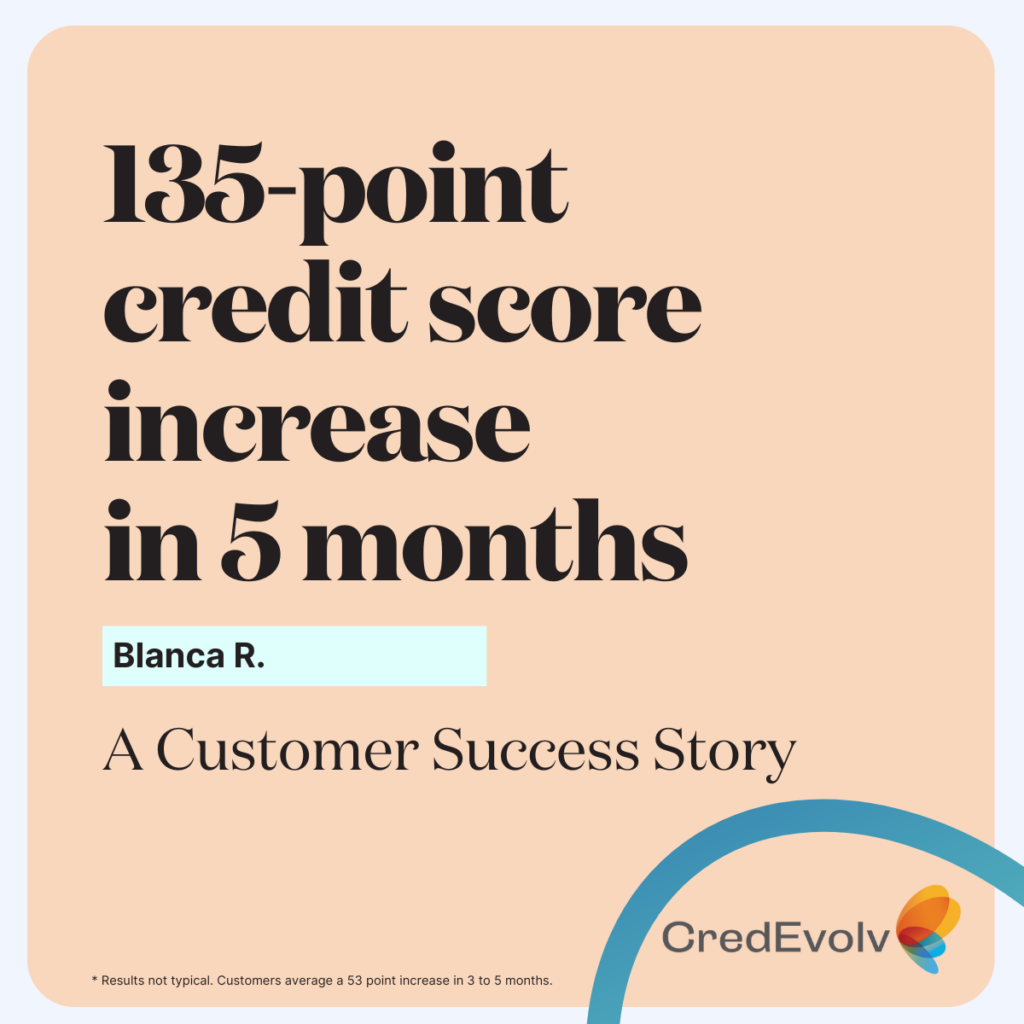
A 477 credit score inspired Blanca to join the CredEvolv platform. She connected with a HUD-approved, nonprofit credit counselor, who successfully removed some late payments from her credit report. Additionally, the budget they created together enabled Blanca to reduce her credit utilization from 90% to 22%. The result: a 135-point jump to a 612 credit score in 5 months! Next stops: her mortgage lender’s goal of 620 and her personal goal of 660!
What can and can’t be removed from my credit report?
As we discussed in one of our Credit Education blogs, it’s important to know what can legally come off your credit report and what must remain. Here’s the truth: Better credit is not about erasing your financial past. It’s about correcting inaccuracies and improving your 477 credit score going forward.
There’s a lot of misinformation out there. Some so-called credit repair companies claim they can remove all derogatory information from your credit report. But this simply isn’t true. In fact, it’s illegal to remove accurate information, even if it’s negative.
Under the Fair Credit Reporting Act (FCRA), credit reporting agencies are required to report accurate, verifiable information. If you missed a payment or defaulted on a loan, for instance, that information can legally stay on your report for up to seven years. Bankruptcies can remain for up to 10 years.
At CredEvolv, we want to set the record straight: no one can legally remove accurate, negative information from your credit report. What the certified, nonprofit counselors on our platform can do, however, is help you dispute any inaccuracies or outdated information that may be causing your 477 credit score unfairly.
Our counselor partners are trained to spot errors and unfair practices on your report. This gives you the best chance of improving your credit by removing anything that doesn’t belong.
What is credit utilization and why does it matter to my 477 credit score?
Credit utilization is the ratio between the credit limits on your revolving credit accounts and the amount of credit you’ve actually used (check out this blog to see how you can calculate your ratio). Because credit utilization makes up about 30% of your credit score, it’s one of the most important factors that lenders consider when deciding whether to loan you money.
They want to see that you can use credit responsibly without being too dependent on borrowing. Lenders will be hesitant to grant you more credit if your credit utilization ratio is too high. A lower ratio shows that you’re managing your money wisely.
In general, try keep your credit utilization ratio below 30% and ideally under 10%.
When your utilization is too high, it can cause your score to drop quickly – even if you pay your bills on time. But when you can get it closer to or into the sweet spot, your 477 credit score can skyrocket like Blanca’s did!


